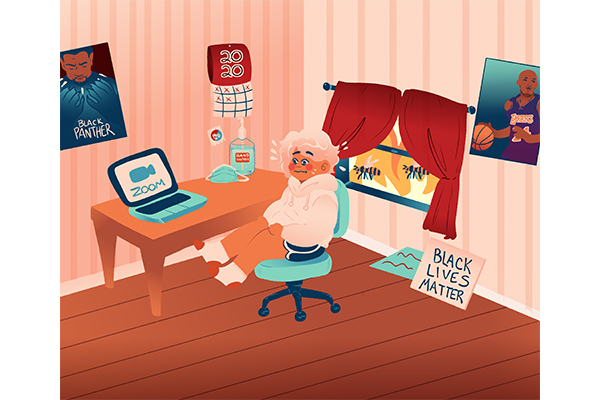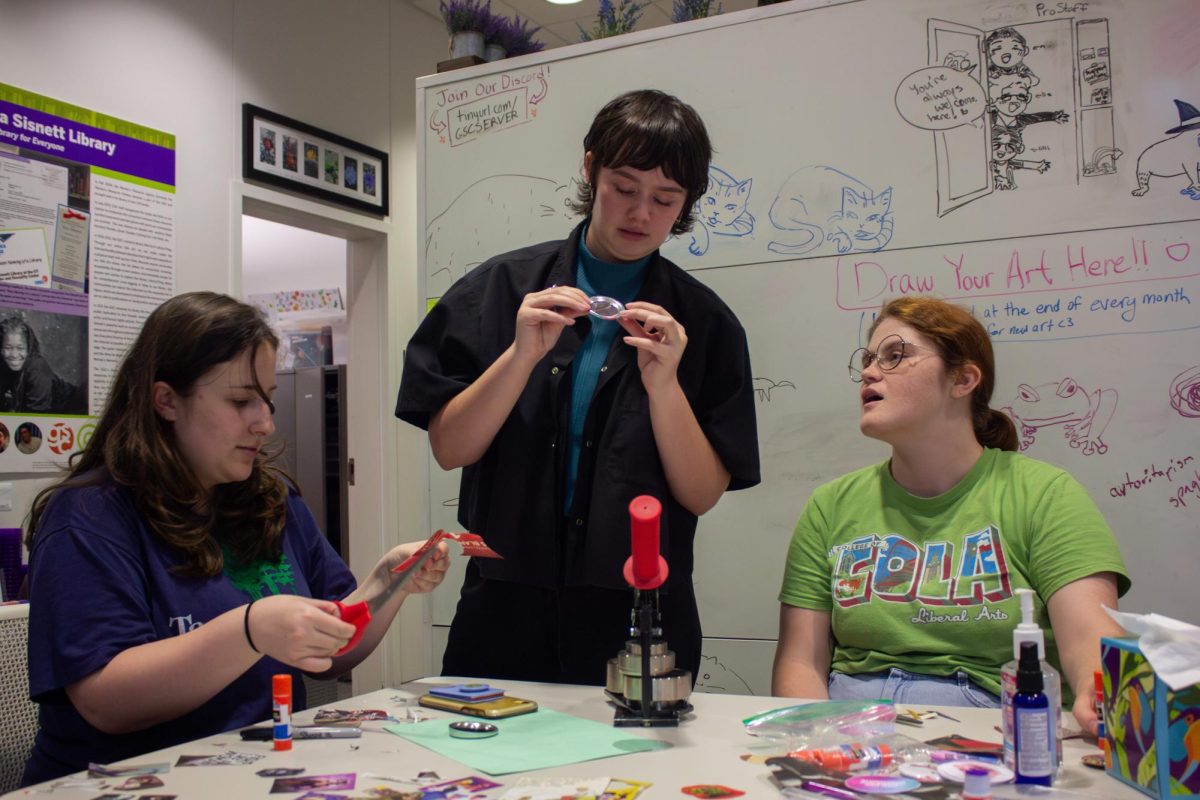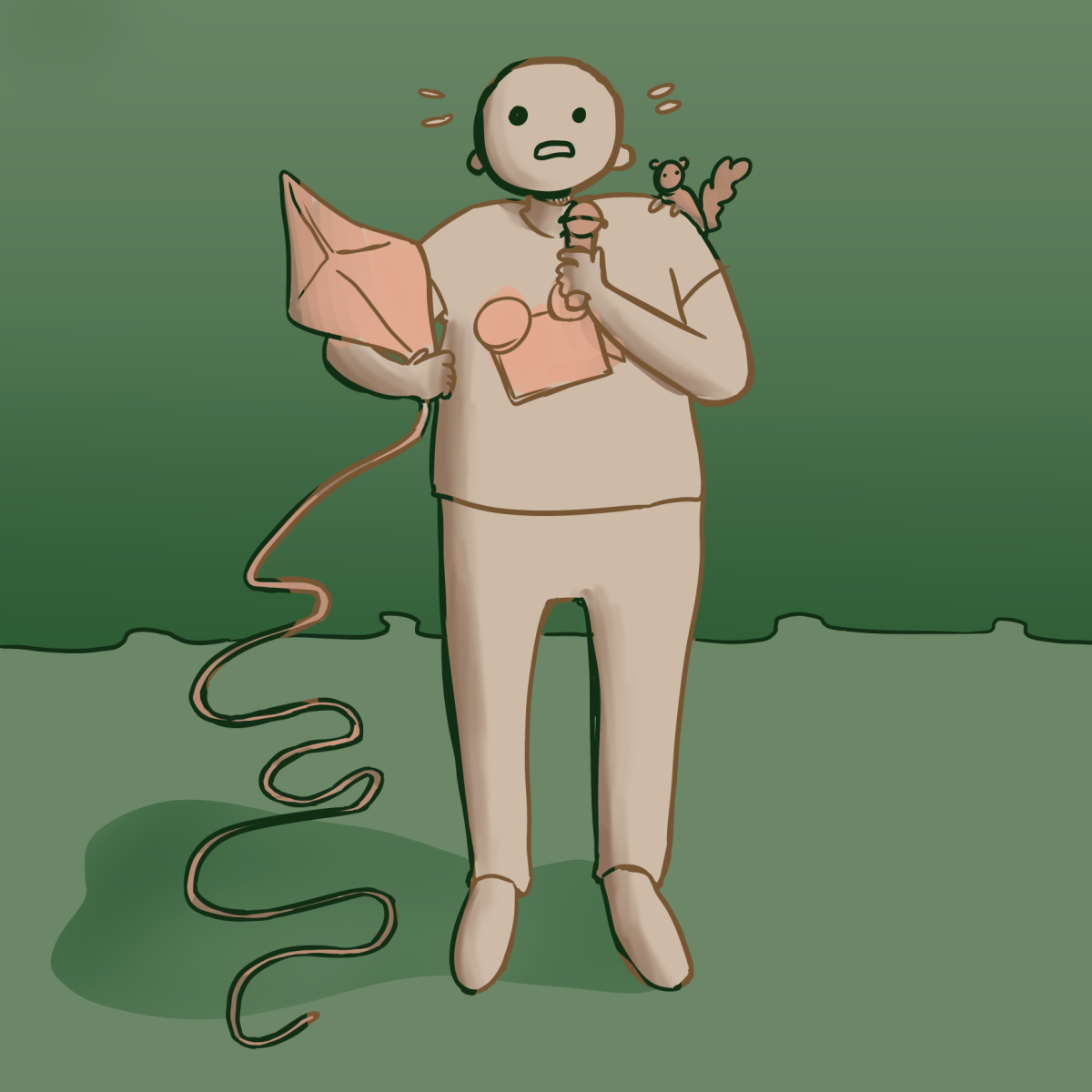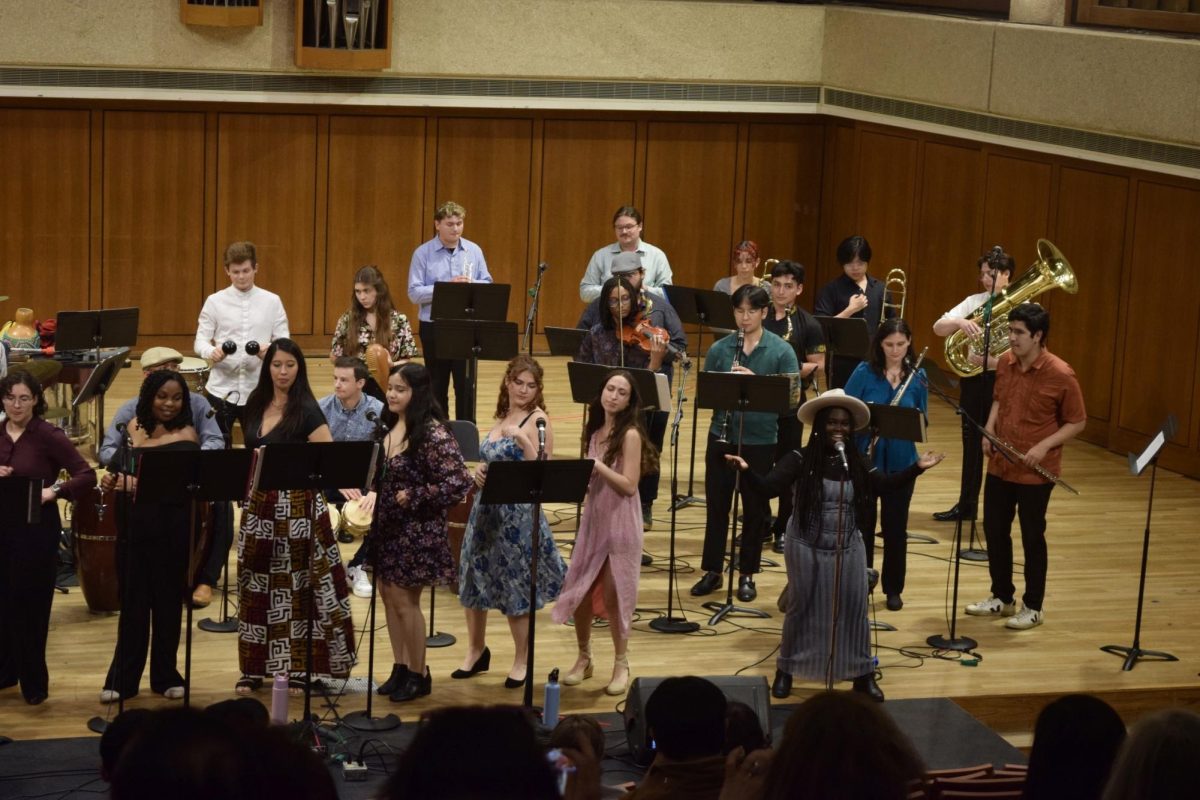Dear future generations,
By the numbers, 2020 saw 267,946 COVID-19 related deaths, more than 15 million participants in Black Lives Matter protests, record voter turnout and 22 million jobs lost. And that’s only the half of it.
When you read about ‘2020’ in your history textbook, five UT students want you to know what it was really like.
Gracie Hornung
“I don't think you'll ever be able to cram into a textbook how tired everyone is and just how rough this (year) was for so many people,” biochemistry freshman Hornung said.
Over the summer, Hornung said she felt like the news was repetitive and never-ending — switching back and forth between COVID-19 and protests across the country.
“It kind of felt like ‘Groundhog Day,’ where you were just living the same day over and over again,” Hornung said.
She said she was “constantly trying to be on the right side of history.” She recalled elementary school, when she wrote a report on what her parents were doing on Sept. 11, 2001. One day, she said her children or grandchildren may ask her where she was and what she was doing during the pandemic.
“You want to (be able to say), ‘I stood up for what was right,’” Hornung said. “I watched out for my fellow Americans. When the news (said) to stay home (and) wear your mask, I did that because it was the right thing to do.”
PJ Chukwurah
“(This year has brought) protests, police brutality, systemic oppression and inequality,” business management junior Chukwurah said. “We still have to fight. Electing Joe Biden is progress but that's nowhere near enough.”
Chukwurah said that this year he has learned that the fight for equality for women, minorities, LGBTQ+ individuals and BIPOC is not over.
“I'll be real — I don’t feel safe around the police,” Chukwurah said. “I get PTSD. I'm a Black man and a lot of Black people feel that way. We can’t be satisfied. We still have to work for change.”
While some learned about social injustices recently through the news and social media Chukwurah said this isn’t new information to him.
“(The) one thing I'm passionate about is just marching for change and systemic oppression because it's always been a problem, and we can’t let it die down,” Chukwurah said. “We can’t go back to normal because there's not a normal for people like me.”
Blake Motl
“Throughout March and April, that was probably the most depressed I had been in my life,” finance junior Motl said.
Motl said he has been back home in Allen, Texas, since campus closed and the state went under lockdown in early March.
“There was one point where I sat in my room for probably two weeks straight just because there really wasn't anything I could do,” Motl said.
Jackie Cheng
“We’re starting to see more struggle for racial equality — not only here in America, but also around the world,” said Cheng, a sociology and international relations freshman.
In the midst of a turbulent presidential election and calls for racial justice, Cheng said this year has led her to have more conversations about politics and social justice.
“I found myself thinking, ‘Oh my (gosh), I can't believe this … just why?’” Cheng said. “Why wouldn't you want everybody (to) achieve more equity? We're all just people.”
Cheng said she’s tried to have conversations with her family about her beliefs, and she has often left them feeling overwhelmed.
“That feeling of when you recognize someone's too far gone and nothing you say will change their mind,” Cheng said. “Just seeing that hate emanating from a person (is hard).”
Kerry O’Malley Gleim
“Class has definitely been a lot harder, just staring at my screen all day,” said O’Malley Gleim, a international relations and global studies sophomore.
O’Malley Gleim is a resident assistant and said it was hard to work, live and go to school in the same space. O’Malley Gleim, like many others, did the semester entirely online as more than 75% of classes were taught virtually.
O’Malley Gleim tested positive for COVID-19 in July. While she has since recovered, she said she still feels the mental and physical ramifications of the virus.
“I don't smoke or anything like that, and it feels like I've kind of been a smoker for a good amount of time now that I've had it, which is really kind of scary and weird,” O’Malley Gleim said.
Lessons Learned
In a year of disease, political divisions and protests, 2020 has taught students a lot, but one lesson stuck with them: resilience.
“The fact that we all (got) out to vote and did our civic duty … after all we've been through this year, after everything that's happened,” Chukwurah said. ”People are still trying their best to make our society a better place and that's what I think is most important. After all this, (we’re) not giving up.”
Hornung said it’s important to be kind to yourself, whether it’s forgiving yourself for not being overly productive or taking a break from checking the news.
“I realized … being positive doesn't really mean being happy and smiling all the time, (but) means letting yourself have dark, really bad days but knowing that it can’t always be dark and bad forever,” Hornung said “And that sometime soon, it won't be that bad anymore.”





















